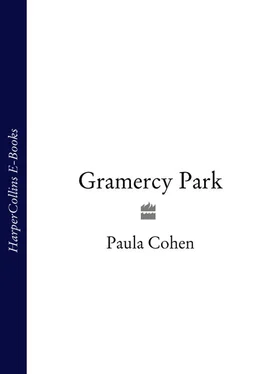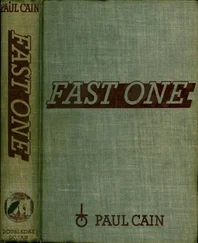1 ...6 7 8 10 11 12 ...22 “He does not care that she is afraid. How could he not care? How could anyone be harsh with her? Such a small child, Stafford … such eyes. Did I tell you about her eyes?”
“All afternoon, Mario.”
Alfieri turns to his friend, his smile returning. “You think I have gone mad.”
“I think you have been struck by lightning, as they say in Italy. Are you in love with her?”
Alfieri’s laugh is incredulous. “I? In love with a child? My God, Stafford, are there not women enough in the world? You think that now I must start with little girls?”
“She’s not a child, Mario … I understand she’s nearly twenty.”
“An old lady, certainly! But only if one is your age, ragazzo. ” Alfieri shakes his head again. “Stafford, you know my family. My youngest sister—the baby, Fiorina—will be twenty on her next birthday. When she was born I was twenty, and already singing leading roles. How could Miss Adler be anything more than a child to me? And a little child, at that … when I first saw her I thought she was fourteen and no more.”
“Then why this concern for her?”
Alfieri shrugs, his smile fading. “Can you see a child in pain, and not try to help it? Some can, maybe … Mr. Chadwick, perhaps. But I cannot. And then …” He stops, thinks, shakes his head again. “I tell you, Stafford, there is something about her. She is so like … and yet not …” He raises his hands, then lets them fall, helpless, to his sides.
“Let it go until tomorrow, Mario; wait and see what Buchan can accomplish. There is nothing more to be done, certainly not tonight. Besides, all of New York must be wondering where Mrs. Astor’s guest of honor has gone.”
“You are right, my friend,” the tenor says, as they make their way back to the ballroom. “At least I know that little Miss Adler is not in any distress now. Only musicians—and the very rich—turn night into day. At—what time is it?—two o’clock in the morning?—most of the world, and especially children, are in their beds and fast asleep.” He lifts two glasses from the tray of a passing waiter and hands one to his friend. “To our success, Stafford, and her sweet dreams.”
REST OF ANY KIND, whether of mind or of body, has always eluded Clara. She cannot remember a time when sleep has come easily for her; perhaps it never has. Even in childhood, in the many beds and the many rooms of the many houses in which she had passed her years—more than a visitor, less than a guest—sleep had been a stranger. What wonder, then, that now, in her forfeited bed, in the room that is no longer hers, in the house she will soon leave forever, it should continue to pass her by.
She has left her childhood very far behind her; but she lies now, in her warm bed, as she did then, under the thin blankets and the mended sheets, in the hot rooms or the drafty ones; lies awake and staring at the chink in the curtain where morning glimmers like a star, listening to the birds wake and call—such a lonely sound—in the twilight world outside.
What was it he had said that morning? “You deserve a better life.” She had thought so, once. “My dear child,” he had said. “Have you no family to return to? No one at all?”
“No one.”
“No parents? No brothers or sisters? No relations of any kind? All dead?”
“Yes,” she had said. “All dead.”
“Then where will you go? Has anyone told you?”
“No.”
“How can you bear not to know?”
“They will tell me when it is time.”
“Haven’t you asked?”
“No. It doesn’t matter.”
“My dear, if that doesn’t matter, then what does?”
“Nothing.”
He had looked at her so pityingly. He had been so kind. He will take the house—he had told her so—and she will move on once more.
It occurs to her, now, lying in the gray light, that he must think her mind unsound; must believe her despair to be both symptom and proof of madness.
Not so. Her mind has already passed through that shadowy realm, like a soul sinking into hell, and fallen out the other side. To go mad again would mean an ascent, an upward journey; but she has tumbled out of madness onto a plain of such pitiless clarity, and there is no escape.
Madness would be a relief. Madness, at least, being shadowy, had offered her places where she could hide. But it has all come back to her now, one death resurrecting another, grief reviving grief … and here, in this boundless desolation, the vision stretches endlessly: the past remembered clearly, the present lived clearly, the future—oh, not the future of his tea leaves—seen clearly.
What she has done is always with her now, as is what is left to her; and the two are joined inextricably, the one engendering the other, and both are linked through what she is. It is like being the point where two lines cross; like peering through the wrong ends of telescopes into remote distances on both sides of her life at once; like looking forward and backward together.
There is no forgiveness in either direction. No pity. No hope.
She wipes her eyes. Waking to the sound of his voice, she had thought, at first, that she had died, and for the moment she had felt such joy, knowing that her misery was over at last. And then she had opened her eyes and seen him, and he was his voice made flesh, dark and beautiful, and she was glad she was not dead … forgetting, as she watched and listened, that alive or dead is the same to her now. If she were different, if she were not who she is …
Never mind. He had been kind. He had kissed her hand and read her tea leaves. How could he know that there was nothing to see in them because she had ceased to be long ago?
If she were different, if she were not who she is …
Alone in the dawn, Clara curls herself up, and cries.
THE GRAY LIGHT WARMS and turns to gold, the creatures of the night melt away like dew, and the pace of the city quickens with the progress of the new day. Clara sleeps at last in her sun-warmed room and, mercifully, does not dream.
Thaddeus Chadwick, although he had bidden Mrs. Astor adieu only shortly before dawn, rises at his usual hour, which is eight o’clock. Chadwick needs little sleep—an advantage, perhaps the only one, of advancing years—but even in his youth sleep had been a luxury he could forgo at need. Far more important to him is the orderly management of time. If Mrs. Astor’s life is measured in cotillions and balls and levées, Chadwick’s is measured in hours and minutes and seconds, each day being so finely calibrated that one can be certain of exactly where he is at any given moment, just by looking at a clock.
Nine o’clock finds him at his breakfast in the morning room. His house is one of a graceful row of houses fronting the north side of Washington Square, its red brick faded by time to a rosy hue, and the morning room, at the back, looks out onto his small garden, where the lately radiant dogwood trees are now losing the last of their pink and white blossoms.
This is his favorite room of the house: a sunny chamber filled with shining, dark furniture lit by the gleam of brass, the table laid with a snowy cloth and fine china. It is a room with a clear conscience, a room indicative of a healthy appetite and a good digestion, and it illustrates the guiding principle that informs every aspect of Chadwick’s existence: serenity. As a bachelor, he can shape his life to suit his wishes, and he does precisely that. No voice is ever raised in his presence; no untoward emotions ruffle his days or intrude upon his nights. He floats through life upon his small feet, his placid smile upon his lips, observing the world benignly, and the occasional furor—such as the sudden death of his friend Slade, or the equally sudden affliction of Slade’s little ward—falls into his life with no more effect than that of a pebble flung into a glassy lake: the ripples soon die away, leaving the water as tranquil as before.
Читать дальше












